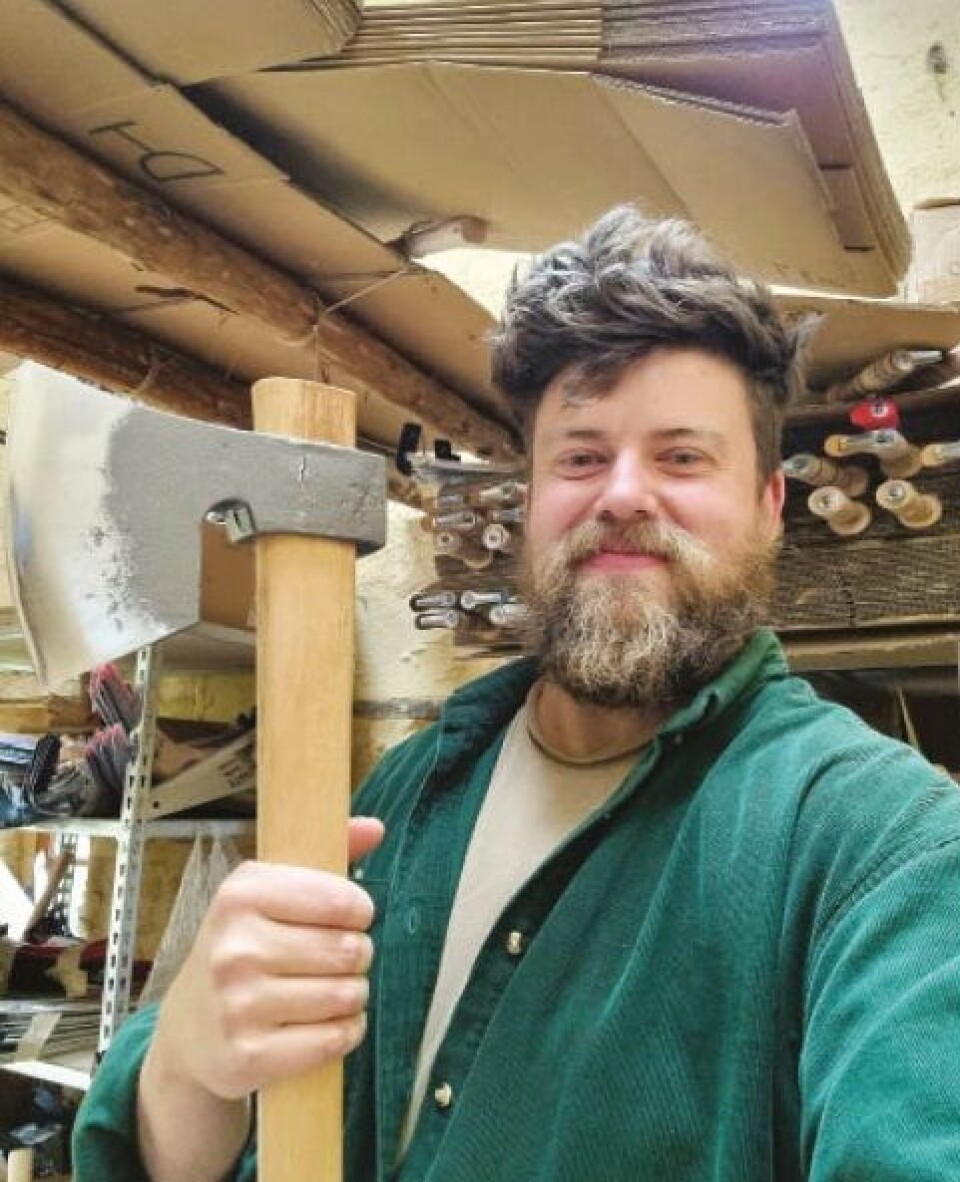-
What are the jobs you cannot do in France with ‘auto-entrepreneur’ status?
The status offers tax and administrative advantages, but has strict rules about the professions allowed
-
VAT on small businesses: French MPs call for no reduction in threshold
Plans to lower the threshold to €25,000 would hurt micro-entrepreneurs and ‘massively destroy activity and wealth’ say critics
-
Many small firms and self-employed in France soon obliged to issue digital invoices
One small business group has called for more support for the extra costs
French business graduate finds the tools to tackle climate crisis
Thibaud Morthelier created his traditional hand tool business in 2021 after growing disillusioned with corporate life in Lyon

A business school graduate who left corporate life for a “simpler, most sustainable lifestyle” is now working to revive traditional garden tools.
He says this can help the planet and make people happier and healthier. Thibaud Morthelier, 32, quit his role after becoming disillusioned with how big firms act as a force for good in today’s competitive markets.
He wrote a thesis on the subject during his time at Paris’s Idrac business school before moving into a role as business manager at Public Actif and as a social entrepreneurship and innovation manager at pharmaceutical company Sanofi.
However, he began to believe that in many instances a company’s corporate social responsibility policies amount to little more than ‘greenwashing’ and eventually handed in his notice.
“I realised that to be a force for good, you had to start from scratch with no market and no competitors,” he said.
A simpler lifestyle
Having quit his job, he moved with his wife from bustling Lyon to Campagnac-lès-Quercy in Dordogne, where he briefly set up an IT business to keep money coming in. He also embraced the simpler lifestyle that his move to the country afforded, including chopping wood and learning how to use a scythe to harvest cereals.
He documented his efforts on social media and was surprised by the interest, especially from those looking for tips on how to use the tools themselves.
Gap in the market
With modern garden centres favouring standardised or power tools, he spotted a gap in the market for traditional axes, scythes and hoes and created La Frontière in 2021.
The website claims to be for people “who want to live a simpler, healthier and more resilient life”.
It continues: “More than just a source of quality tools, La Frontière is a call to slow down, to learn to do without artificial energy and to rediscover the satisfaction of working to the rhythm of nature.
“It’s also a call to rediscover the conviviality and mutual support that we’ve often lost to machines that allow us to do things faster, but without the input of others.”
What the future holds
Mr Morthelier insists that his company is not backwards looking but rather anticipating some of the challenges the future holds.
“I am convinced that my generation and the next will have to learn to live by slowing down and finding the right balance between their lifestyle and nature’s pace,” he said.
Rather than one-size-fits-all, as is the case for the majority of garden implements we use today, his tools can be adapted to individual needs and tasks.
He gives the example of 19th century axes, which had wooden handles so that users could saw them down to adjust their height.
Individualised products
Many modern axes, however, are a standard 90cm length with handles made from plastic that cannot be cut, preventing customisation.
Hoes, he continues, are now offered only in a very limited range, whereas a century ago there would have been hundreds of types tailored to different surfaces and purposes.
“I have no interest, in a world of overconsumption, in offering standardised tools that people can find anywhere else,” Mr Morthelier said.
His axes cost between €50 and €150 and are made to last at least one lifetime, he says.
The company has a YouTube channel, called Theud Bald, offering tutorials on how to use the tools, but it does not craft them in-house.
Instead, they are sourced from local carpenters, as well as through a partnership with BR Rinaldi, a three centuries-old Italian family specialising in axes, billhooks, machetes and other tools that excel in hard-use environments.
The firm’s strapline claims hand tools will “set you free” – a philosophy expounded by a number of high-profile French writers on climate and ecological issues that Mr Morthelier cites as inspiration.
Customer base
His customer base is diverse, he says. It includes everyone from middle-aged gardeners fed-up with the noise of their mowers to full-on survivalists, and everything in-between.
La Frontière does not offer 24/7 customer service, nor does it promise to deliver in 48 hours or make any other claims of ‘convenience’ or ‘savings’ we have come to inspect from retailers.
What it does promise, however, is tools forged in shapes that have all but disappeared from French commerce.
“We need to support these companies, which are keeping alive the traditional tools we abandoned with the arrival of consumer society.
“These are tools which have evolved over centuries. We must pass them on to future generations.”
Related Articles
Hotter, drier summers ‘will be the new normal in France’
How bad is the drought in France? See restrictions in your department
























